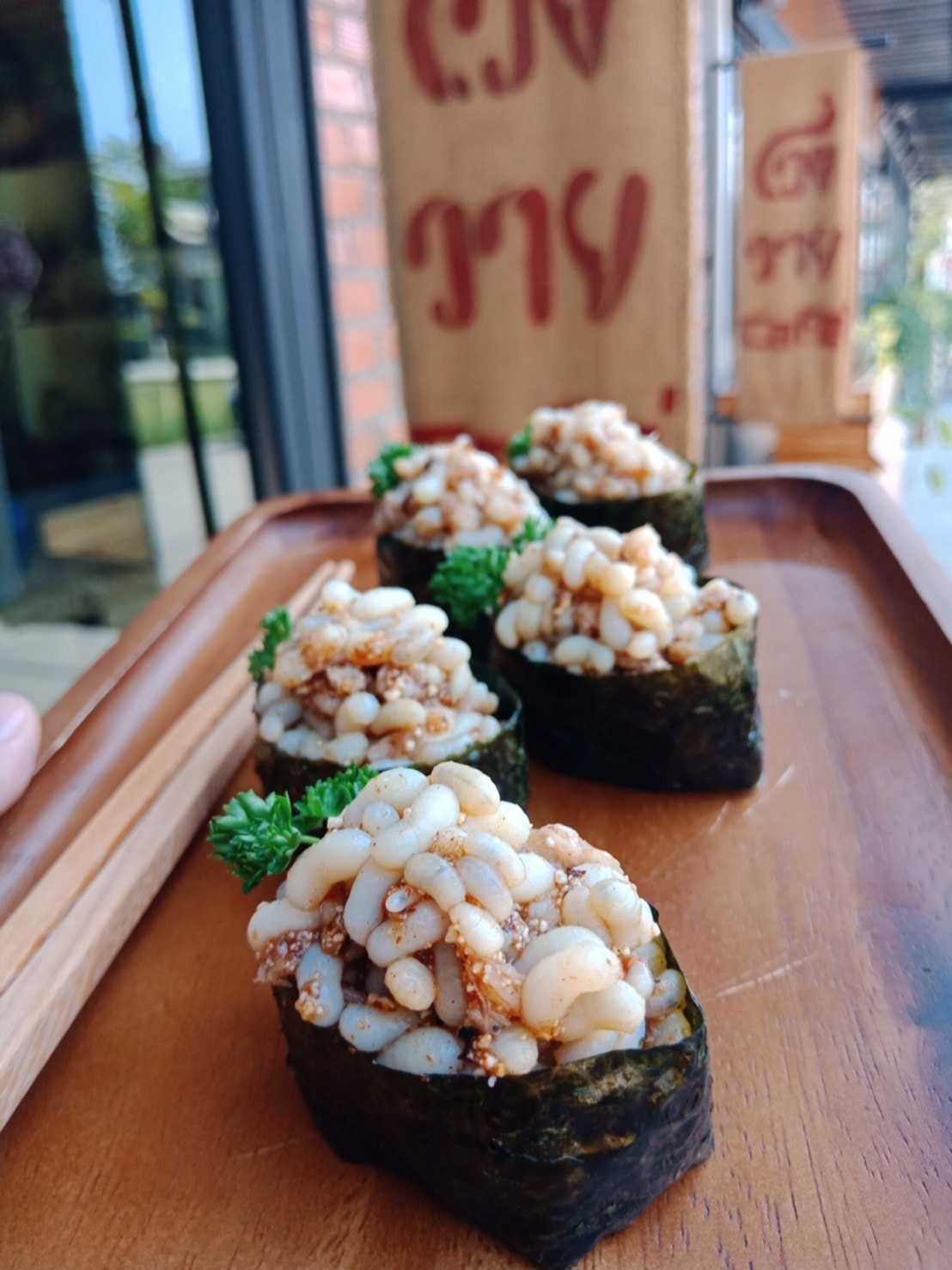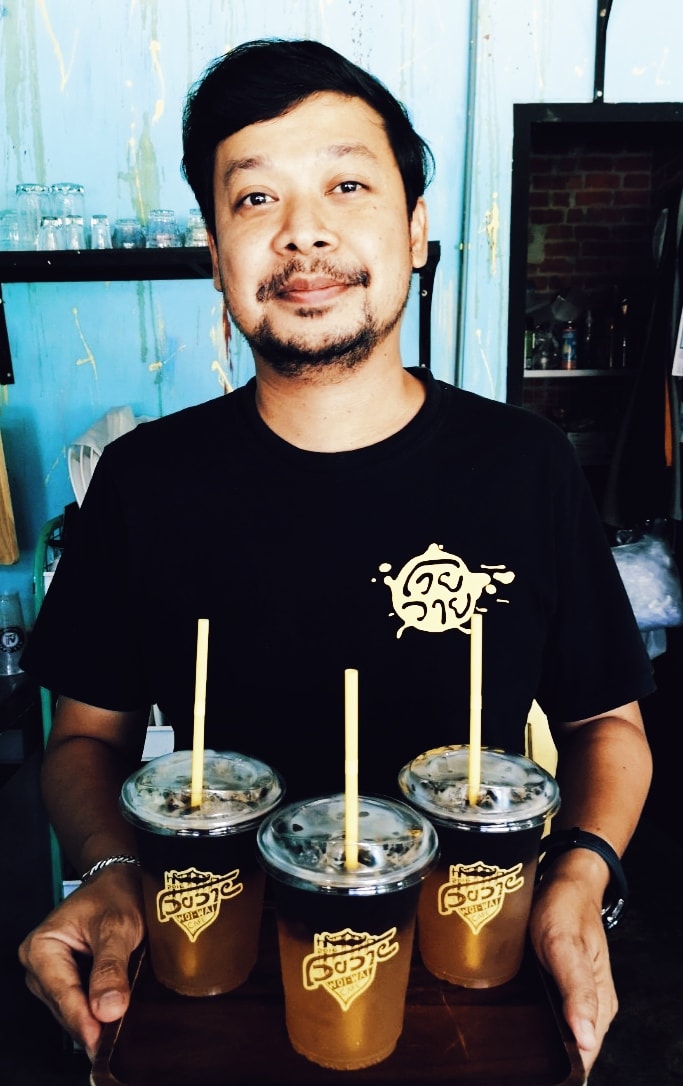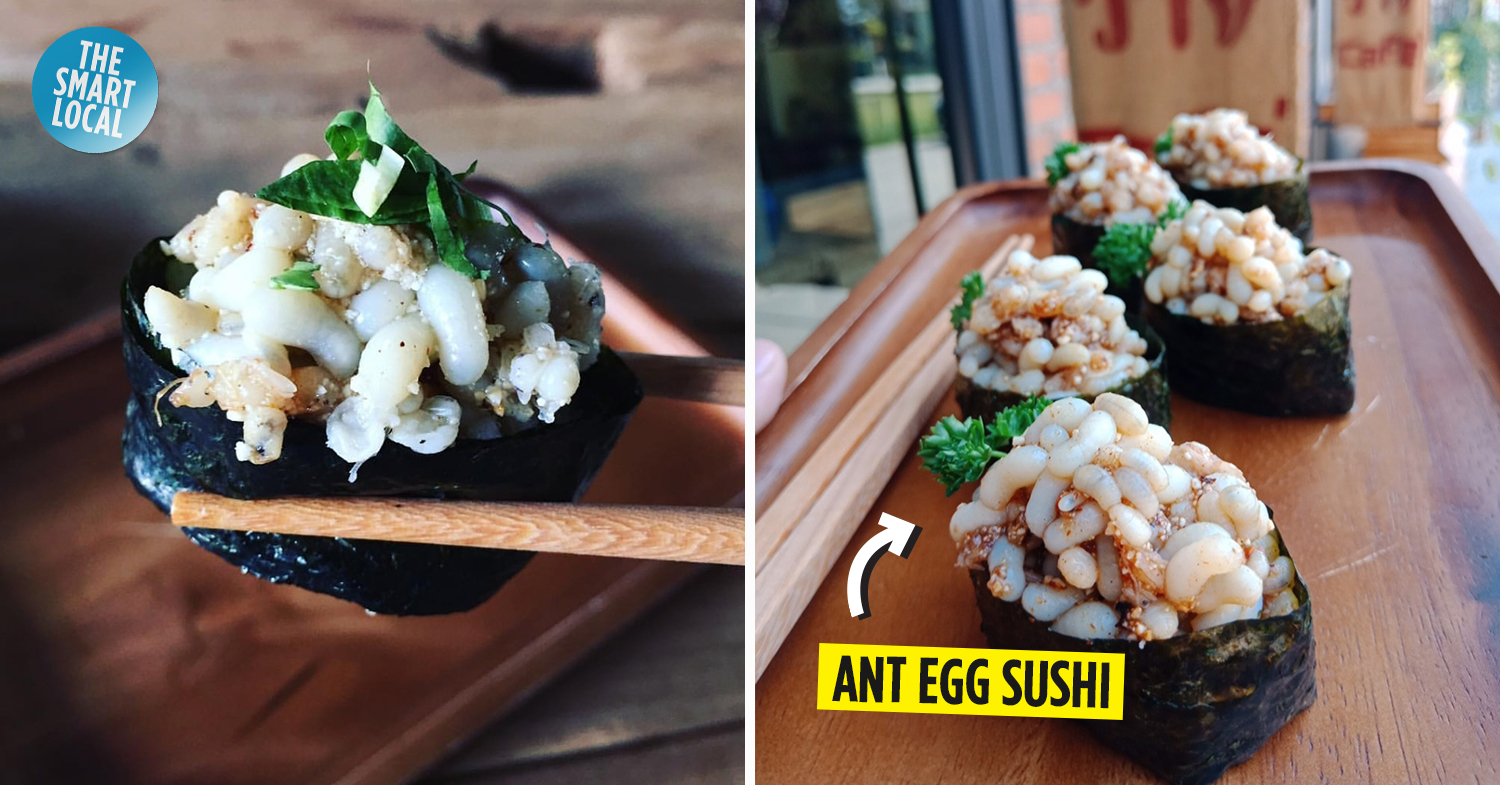Thai chef serves ant sushi
Sushi is a world-renowned food. These rice rolls with toppings from Japan have been adapted by many chefs across the world that it’s no longer an exclusively Japanese dish.
Though, ant egg sushi is definitely a variation on the Japanese classic menu that we’ve never imagined. Thai chef and owner of Woi Wai Cafe in Phitsanulok, Mr. Arotwut Boonchan, serves raw ant egg sushi once a year.
Here’s why the chef includes raw ant egg sushi in his omakase menu.
More on gritty food supplies:
- Surin farmers collect beetles in Thailand’s wetlands
- Thailand sells protein powder made from crickets
- Thai man buys “unwanted” geckos from people
Chef serves ant egg sushi at ฿100 per set
Chef Arotwut Boonchan, owner of Woi Woi Cafe in Phitsanulok, offers ant egg sushi once a year. Three pieces of his annual specialty costs ฿100 (~USD3.10). The delicacy is available from May through early July, and coincides with the harvesting season for ant eggs.
If you’re curious as to why Chef Arotwut chose to use raw ant eggs as a sushi topping, it’s because he wanted the dish to be an amalgamation of Isaan and Japanese culture, according to Naewna.
These eggs are harvested from red ants, and are a delicacy native to Thailand’s Northeastern Isaan region, as well as a popular cuisine that is loved throughout the country.

Image credit: โวยวาย cafe’
A KG of raw ant eggs costs ฿600 (~USD19) to ฿1,000 (~USD31) on the market.

The owner and chef
Image credit:โวยวาย cafe’
Raw egg ants in Thai cuisine
Raw egg ants are included in other Thai dishes, like larb kai mod daeng, or Southern Thailand’s tom gati kai mod daeng, which translates raw ant egg coconut soup.
The ant eggs have a sweet and umami flavour to them; they’re also rather rich, so it may remind you of fatty tuna.
Food of the future
Although raw ant eggs may be a little bit of an atypical ingredient, it’s been said that they’re the food of the future – along with other insects like bamboo grub or silkworms – due to their high nutritional value. They’re also more sustainable to harvest than other proteins.
Luckily for Thailand, we have all of these ingredients right here. In fact, Thailand has been exporting frozen silkworms to European countries, such as Germany.
Have you tried any “food of the future” ingredients? What’d you think?
Cover images adapted from: โวยวาย cafe’
Enjoying The Smart Local Thailand? Follow us on Facebook and Instagram for more stories like this.
